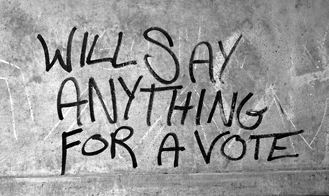A (young) mind is a terrible thing to waste
Monday, March 4th, 2013 by Marko PhiriCritics of regimes where hardships thrive are quickly labelled anti-revolutionary, pro-white capital and every epithet from the lexicon of rabid nationalists who have doubled their resolve to right past economic wrongs but in the process lost sight of their goals.
I recalled this when I watched on TV young fellows walking in celebration of the President’s birthday where the spokesperson of the young patriots parroted the kind of language that has come to define Zanu PF.
I did not know whether to laugh or cry.
You have on one hand youth NGOs being harassed by the repressive state apparatus, while many more others such as those who have emerged from academic hallways as student activists being hounded by men in dark glasses.
On the other extreme you have fellow youths adopting the lexicon of hate speech and you have to ask why the circumstances of this demographic can elicit such radically polar interpretations.
Are these young people from the same planet, you wonder.
Surely one’s political beliefs are a democratic right, yet when such differences are extant, you have to view this as a typical case of privilege pitted against deprivation.
And when you look at it like that, you obviously conclude that these people who would be saddled with the same post-independence “born-free” epithet from the usual suspects have different access to state resources when in fact that wealth ought to be universal.
And that is the tragedy of present day Zimbabwe.
Those “eating” from the trough of patronage imagine a perpetuation of the status quo, while the laggards aspiring for a piece of the national cake seek its end.
With elections approaching, it is no wonder then to see young people fighting each other, and the political elites who many agree long lost their relevance find these young mouths to reclaim that relevance.
It is Benjamin Disraeli who wrote in the political novel Sybil back in 1846 that: “The youth of a nation are the trustees of posterity.”
You have to ask yourself if this at all holds true here.










